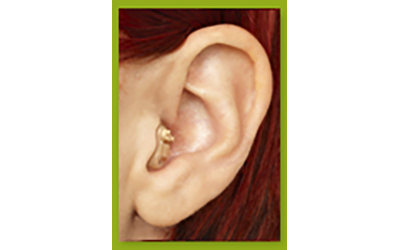Your Hearing Care
If you are looking for hearing care in Ontario, AHIP is a great place to start.
Visit our Find a Practitioner page to search for qualified practitioners near you, or browse our FAQ and resources below to learn more about hearing tests, devices, and more.
Hearing Care FAQ
What is involved in a hearing test?
The Hearing Instrument Practitioner will take a case history to discuss hearing challenges and medical history. An otoscope will be used to examine the ear canal and eardrum. The Practitioner will also measure the health of the middle ear by performing immittance and acoustic reflex tests. You will enter a soundproof booth and be presented with both pure-tones and speech sounds via foam plugs or headphones. You will be asked to indicate when a tone is audible and to repeat words when presented. In addition, a bone conductor will be used to assess the type of hearing loss. The results are transcribed onto an audiogram.
What is an audiogram?
An audiogram is a graphic representation of your hearing test results. During a hearing test, sounds are presented at different frequencies and intensities. The softest sound the individual can hear at each frequency is recorded on the graph. The Hearing Instrument Practitioner uses the results of the hearing test to establish if there is a hearing loss, the nature and degree of the hearing loss and hearing instrument options.
Would I notice my hearing loss?
Not necessarily. Hearing loss often develops slowly and can go undetected for some time. In fact, it is quite common that the signs of hearing loss are first detected by family and friends. Many people who suspect they have a hearing loss are reluctant to seek help.
Hearing loss can have a negative impact socially, psychologically and cognitively. It is recommended to have a hearing test as soon as a loss is suspected, even if it is only noticed by others.
What are some common signs of hearing loss?
- You struggle to understand conversations in groups or in the presence of background noise.
- You frequently misunderstand parts of conversation or need to ask people to repeat themselves.
- You believe that “everybody mumbles” or “people don’t speak as clearly as they used to.”
- Friends and family have complained that the level at which you listen to the television or radio is too loud.
- You find it difficult to hear if you are unable to watch people’s faces or if people are trying to talk to you from a distance.
- You become anxious, irritable, or exhausted from trying to hear.
Will hearing aids restore my hearing to normal?
The most common type of hearing loss is sensorineural or “nerve deafness.” This means there is damage to the nerves that transmit signals to the brain. So, simply making sounds louder will not always make them perfectly clear.
Hearing aids are designed to provide varying amounts of volume for different frequencies. A Hearing Instrument Practitioner can program the hearing aid to amplify the sounds you are missing without making sounds you already hear too loudly. As a result, speech understanding is improved and less listening effort is required.
Will my hearing aids help in the presence of background noise?
Understanding speech in background noise is one of the most common complaints for those with hearing loss.
Advancements in hearing aid technology, such as directional microphones, are designed specifically to improve speech understanding in noise. The overall benefit will depend on a variety of factors such as degree of hearing loss, frequency of use, and style of hearing aid selected.
Why do I need two hearing aids?
Two hearing aids are often recommended for individuals that have bilateral hearing loss, (hearing loss in both ears). Our brain uses cues from both ears to determine which direction sounds are coming from, allowing us to locate the source of the sound. Wearing only one hearing aid comprises this ability and is therefore not as effective as wearing two. Providing stimulus to the brain from both ears allows for better spatial awareness, fuller sound quality and improved speech understanding in noisy environments.
How do I go about getting my hearing tested?
You can use our website’s Find a Practitioner feature to locate an AHIP member in your area.
Do You Have Hearing Loss?
Hearing Loss is an invisible disability and affects people of all ages. It is often left untreated until it has negatively impacted the lives of the hard-of-hearing and everyone around them. Approximately 3 million Canadians suffer from hearing loss, that’s 1 out of 10 people!
Signs of Hearing Loss:
- Difficulty understanding speech
- Asking people to repeat themselves
- Difficulty understanding women and children
- Difficulty hearing on the phone
- Favouring one ear
- Ringing in one or both ears
- Difficulty hearing in noise
- Isolation, depression and irritability
- Family and friends suspect hearing loss
If you have answered YES to 2 or more questions, you may have a hearing loss. Please consult with your local Hearing Instrument Practitioner for further advice. If you do not have one, please check out our “Find a Practitioner” page. It is important you speak to a Hearing Instrument Practitioner.
Untreated Hearing Loss can lead to:
- Anxiety
- Depression
- Social Isolation
- Relationship breakdown
Hearing aids can help an individual overcome some of these issues but he/she should also utilize other communication strategies to communicate more effectively. Here are some examples of communication strategies both from a speaker and a listener’s perspective.
As a speaker communicating with a Hard-of-Hearing individual you should:
- Ensure that the Hard-of-Hearing person is facing you
- If the speaker is a male, please ensure that your beard or mustache is clean-shaven above and below the lips. Otherwise it will disrupt the lip-reading patterns
- If the speaker is a female, please ensure that lipsticks used are not bright and shiny as it also disrupts lip-reading patterns
- Please keep hands or objects away from the lips or face
- Do not shout! Speak clearly and slowly
- Do not repeat. Kindly rephrase your comments or questions
- Check the lighting in the room. If it is dim, the hard-of-hearing person will have great difficulty understanding you
- Move to a quiet area of the room if background noise is present
- If you are in a restaurant with a Hard-of-Hearing person, ask for seating near a window for better lighting and away from the kitchen or any loud noise sources
As a Hard-of-Hearing individual, you should:
- Ensure that you are facing the speaker
- Be assertive! Notify the speaker of your hearing loss and request that the speaker speaks clearly and slowly
- Reduce the distance between you and the speaker
- Ensure good lighting in the room
There are a variety of hearing aid styles to choose from:
Please consult with a Hearing Instrument Practitioner for more information.
Articles & Resources about Hearing Care in Ontario
Cochlear Implantation Associated with Improved Speech Perception
Cochlear implantation was associated with improved speech perception and cognitive function in adults 65 years or older with profound hearing loss, according to a report published online by JAMA Otolaryngology-Head & Neck Surgery. Hearing impairment is associated...
The Link Between Diabetes Mellitus And Sensorineural Hearing Loss
A Summary of the Evidence By Eirini Mihanatzidou, MA(Hons), M.Aud, Aud(C), Reg. CASLPO, and Rhonda Kerlew, RN, BScN, MBA About the Authors Eirini Mihanatzidou (far left) is the president and chief audiologist of Brilliant Hearing, a patient-focused audiology practice...
Buyer Beware: The Danger of Buying Hearing Aids Over the Internet
I was having a conversation with a man at the gym the other day, and the talk turned to hearing aids. The man, in his 70s, admitted he was hard of hearing, but was reluctant to get hearing aids because he found them so expensive. He told me that if he does get a new...
WARNING: Buying Hearing Aids from the Internet
Serious Health Risks In Ontario, a prescription is required by law prior to a hearing aid being dispensed. Without obtaining the assistance of qualified hearing healthcare professionals, you will not have obtained proper testing, selection, counseling and dispensing....
Types of Hearing Aid Technology
Just as there are many types of people with a wide variety of needs and wants, there is also an excellent variety of hearing aids to suit. The following offers a brief overview. For more details about what will work the best for you book a hearing test and...
Types of Hearing Aids
There are 5 types of modern hearing aids. Each class of devices has unique benefits to help suit your lifestyle and maximize your satisfaction with the devices that you choose. For more details of what will work best for you call your hearing instrument...
Do you have a hearing loss?
Hearing Loss is an invisible disability and affects people of all ages. It is often left untreated until it has negatively impacted the lives of the hard-of-hearing and everyone around them. Approximately 3 million Canadians suffer from hearing loss, that's 1 out of...
Find an Ontario Hearing Practitioner near you



